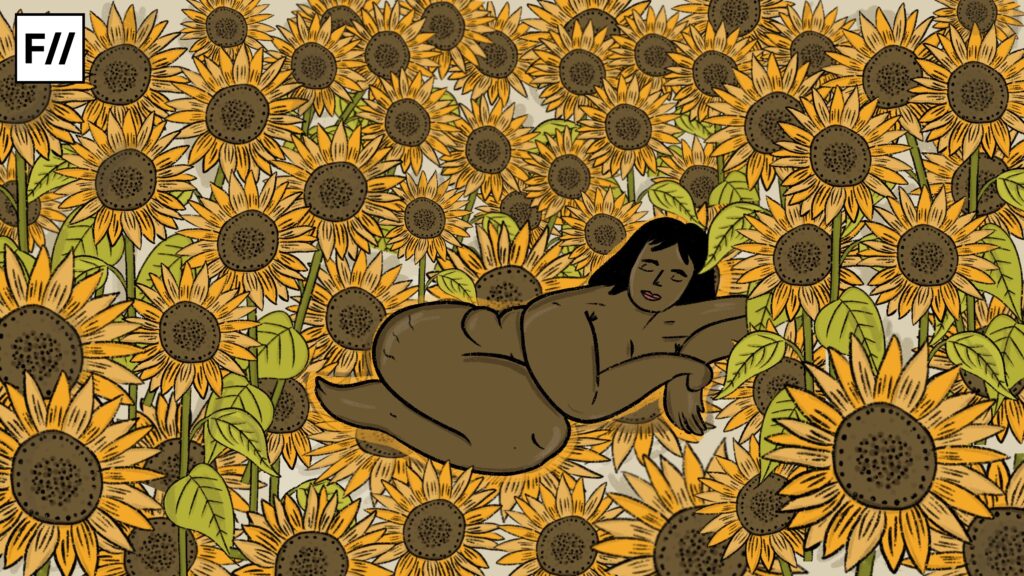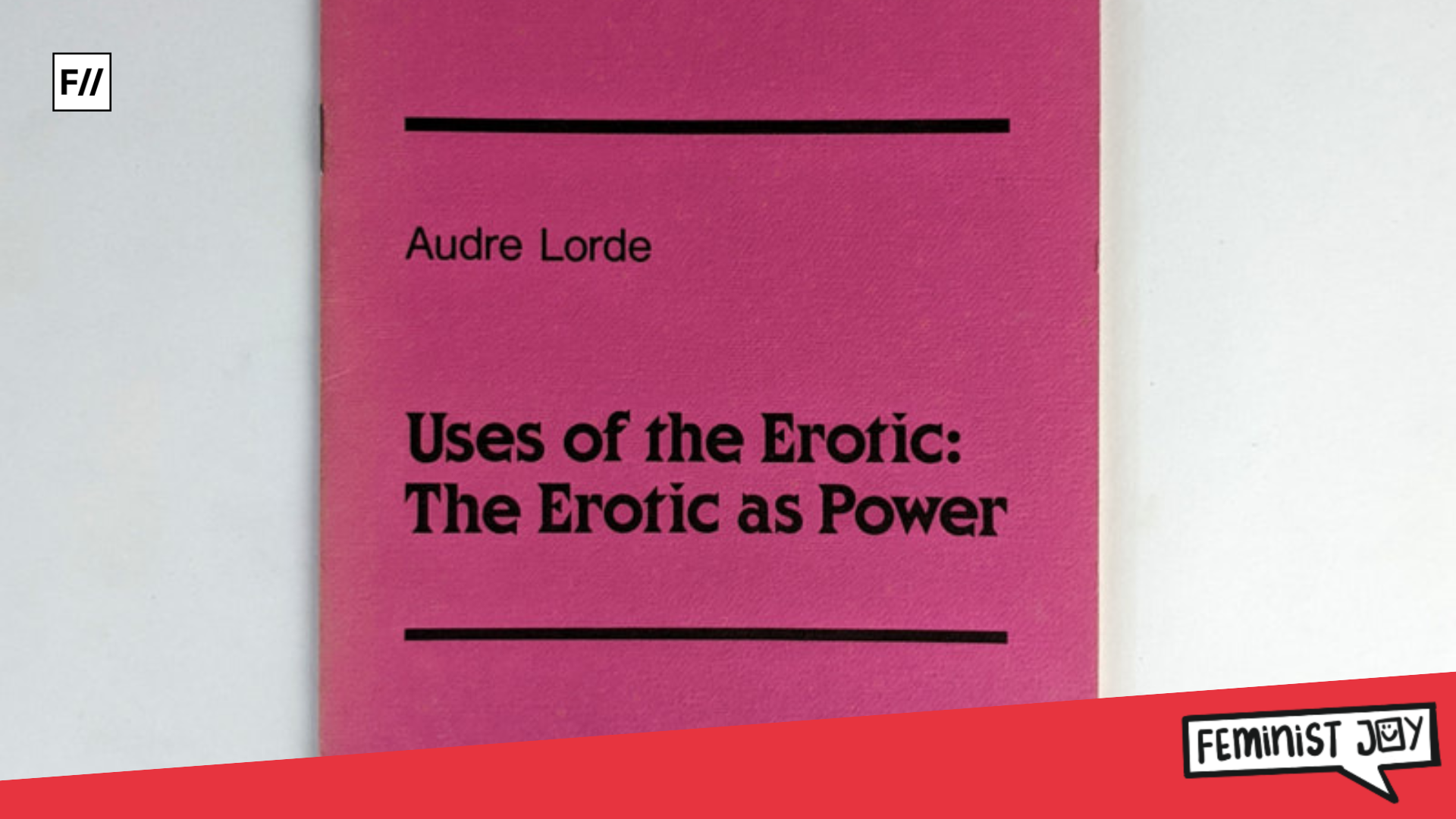Poetry has been a source of comfort and solace for me for as long as I can remember. As a teenager, I used to read poems extensively, memorising them word for word. I would wait enthusiastically for the weekly library periods when I could sit uninterrupted with my head buried in my favourite collections of poetry. During that stage of my life, I even dabbled in writing some angsty verses of my own, something that I am quite reluctant to admit now, ten years on.
The COVID-19 pandemic lockdown gave me a chance to get reacquainted with my love for poetry. Having to move back to my parent’s house with my mental health being in the worst shape it had been in years, I did not have much to look forward to. Poetry, especially work by women poets, offered itself as a way of connection during that period of deep isolation.
I had previously been familiarised with the feminist poetic traditions of Virginia Woolf and Sylvia Plath as part of my college coursework. It was during the past few years that I discovered and began reading a wider range of female poets – the likes of Mary Oliver, Ellen Bass, Wendy Cope and Linda Pastan.
Grief and silver linings
“Bad things are going to happen.
Your tomatoes will grow a fungus
and your cat will get run over.
Someone will leave the bag with the ice cream
melting in the car and throw
Your blue cashmere sweater in the dryer…
No matter how many vitamins you take,
how much Pilates, you’ll lose your keys,
your hair and your memory…”
Relax (2014) by Ellen Bass finds its soothing power through its chaos. The poem stood out to me due to its simultaneous acknowledgement of sorrow and mirth, pain and pleasure. The metaphor of the woman devouring the sweet and crunchy strawberry when her life is falling apart is about finding a single moment of joy and sanity amidst all the madness and latching on to it.

Bass, an American poet and teacher, maintains that “Poetry is always grappling with the question: how do we go on? And one way is to find beauty, and humour, in the humblest, most unexpected places. And to praise this gorgeous, tender, terrifying life that is ours for just a second or two.”
In her poem The Thing Is (2002), Bass provides what I felt was a very relatable description of living with grief. Through its acknowledgement of the sheer weight of suffering, the poem validated my emotions and helped me battle the near-constant feeling of hopelessness that accompanies mental illness.
“..When grief sits with you, its tropical heat
thickening the air, heavy as water
more fit for gills than lungs;
when grief weights you down like your own flesh
only more of it, an obesity of grief,
you think, How can a body withstand this?
Then you hold life like a face
between your palms, a plain face,
no charming smile, no violet eyes,
and you say, yes, I will take you
I will love you, again.”
The last few lines beautifully juxtapose sorrow and resilience – the possibility of bouncing back from something that you thought you could never bounce back from.

Another poem that spoke to me during my spells of isolation was Linda Pastan’s I Am Learning to Abandon the World (1982). Pastan wrote on themes such as marriage, loss, sorrow, motherhood and ageing from a uniquely feminine vantage point.
“I am learning to abandon the world
before it can abandon me.
Already I have given up the moon
and snow, closing my shades
against the claims of white…
And every night I give my body up
limb by limb, working upwards
across bone, towards the heart…”
As a woman living with a chronic illness, it is quite easy for me to fall into an overthinking spiral because I am focusing most of my energy on surviving the day. I frequently struggle with finding meaning and purpose within my own life as well as the grand scheme of things.
The poem articulates how sadness can feel all-consuming and visceral. But for me, it is more about taking your power back from grief, one step at a time. Something as small as the promise of morning coffee or a new episode from my favourite podcast kept me going during tough weeks.
Finding purpose in poems
While Bass’ and Pastan’s poetry helped me understand and give voice to my deepest afflictions, Mary Oliver’s and Wendy Cope’s words brought me moments of joy and wonder. Cope’s The Orange (1992) is probably one of the first poems on that list.
“At lunchtime, I bought a huge orange–
The size of it made us all laugh.
I peeled it and shared it with Robert and Dave–
They got quarters and I had a half.
And that orange, it made me so happy,
As ordinary things often do
Just lately. The shopping. A walk in the park.
This is peace and contentment. It’s new…”
As a woman living with a chronic illness, it is quite easy for me to fall into an overthinking spiral because I am focusing most of my energy on surviving the day. I frequently struggle with finding meaning and purpose within my own life as well as the grand scheme of things. The Orange celebrates the mundane, the unromantic everyday moments that make up our lives and possibly lend them meaning. It also talks about the power of friendship, connection and solidarity.

“The poem’s emotional weight perhaps comes from the hints of darkness at its edges – the statement that the ‘peace and contentment’ felt by the narrator is ‘new,’ that it’s hard-won. For some, ‘The Orange’ feels like a poem about recovery, acknowledging a moment that the narrator would not previously have been able to enjoy,” explains a Faber analysis of the poem.
American poet Mary Oliver’s work is reassuring and comforting in similar ways. In her poem When I Am Among the Trees she advises the reader to not “hurry through the world” but “walk slowly and bow often.” The lingering emphasis on nature and its persistence speaks to me every time I read the poem, and encourages me to be more mindful of the fragility of my own life.
“When I am among the trees,
especially the willows and the honey locust,
equally the beech, the oaks and the pines,
they give off such hints of gladness.
I would almost say that they save me, and daily…”
Her poem Wild Geese (1986) follows a similar trajectory–
“…Whoever you are, no matter how lonely,
the world offers itself to your imagination,
calls to you like the wild geese, harsh and exciting–
over and over announcing your place
in the family of things.”
The poem validates the human inclination to find purpose in their lives and the resulting disillusionment that might follow. But it also stood out to me in its ability to remind us of our shared humanity, that we are all part of something vast and magnificent. Wild Geese reassures me that I am worthy enough as I am.
“You do not have to be good.
You do not have to walk on your knees
for a hundred miles through the desert, repenting.
You only have to let the soft animal of your body
love what it loves.”
Oliver has written extensively on themes such as love, gratitude and our connection with nature. I also find her poetry inspiring because it combines the aforementioned themes with ideas of female leisure and relaxation. Patriarchal structures expect unending physical and emotional labour from women. And so, the notion of women at leisure is subversive in itself and at the very core of feminist liberation.
About the author(s)
Divyani is a media and research professional with a background in critical cultural theory. Her core interest areas are digital cultures, sexuality, and mental health. She loves annoying her cat and a good cup of coffee.





